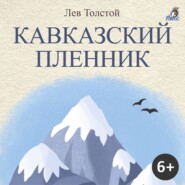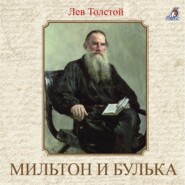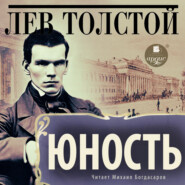По всем вопросам обращайтесь на: info@litportal.ru
(©) 2003-2025.
✖
What Shall We Do?
Настройки чтения
Размер шрифта
Высота строк
Поля
There was also no need to establish a society, because a workingman will naturally associate with other working-people. In answer to the question, “Would not this labour take up all my time, and would it not deprive me of the possibility of that mental activity which I am so fond of, and to which I have become accustomed, and which in moments of doubt I consider to be useful?” the answer will be quite an unexpected one. The energy of my mental activity increased in proportion to bodily exercise, being freed from all that was superfluous.
In fact, having spent eight hours in physical labour, – half a day, – which formerly I used to spend in endeavouring to struggle with dulness, there still remained for me eight hours, out of which in my circumstances I required five for mental labour; and if I, a very prolific writer, who had been doing nothing but write during forty years, and who had written three hundred printed sheets, then if during these forty years I had been doing ordinary work along with working-people, and, not taking into consideration winter evenings and holidays, had been reading and learning during the five hours a day, and had written only on holidays two pages a day (and I have sometimes written sixteen pages a day), I should have written the same three hundred printed sheets in fourteen years.
A wonderful thing: a most simple arithmetical calculation which every boy of seven years of age may do, but which I had never done. Day and night have together twenty-four hours; we sleep eight hours; there remain sixteen hours. If any man labour mentally five hours a day, he will do a vast amount of business; what do we, then, do during the remaining eleven hours?
So it appears that physical labour not only does not exclude the possibility of mental activity, but improves and stimulates it.
In answer to the question, whether this physical labour would deprive me of many innocent enjoyments proper to man, such as enjoyment of art, acquirement of knowledge, of social intercourse, and, generally, of the happiness of life, it was really quite the reverse: the more intense my physical labour, the more it approached that labour which is considered the hardest, to wit, agricultural labour, the more I acquired enjoyments, and knowledge, and the closer and more affectionate was my intercourse with mankind, and the more happiness did I feel in life.
In answer to the question (which I hear so often from men who are not quite sincere), “What result can there be from such an awfully small drop in the sea? what is all my personal physical labour in comparison with the sea of labour which I swallow up?”
To this question I also received a very unexpected answer.
It appeared that as soon as I had made physical labour the ordinary condition of my life, at once the greatest part of the false and expensive habits and wants which I had while I had been physically idle, ceased of themselves, without any endeavour on my part. To say nothing of the habit of turning day into night, and vice versa, of my bedding, clothes, my conventional cleanliness, which all became impossible and embarrassing when I began to labour physically, both the quantity and the quality of my food was totally changed. Instead of the sweet, rich, delicate, complicated, and highly spiced food, which I formerly liked, I now required and obtained plain food as being the most agreeable, – sour cabbage soup, porridge, black bread, tea with a bit of sugar.
So that, apart from the example of common workingmen satisfied with little, with whom I came in closer intercourse, my very wants themselves were gradually changed by my life of labour; so that in proportion to my growing accustomed to this labour and acquiring the ways of it, my drop of physical labour became indeed more perceptible in the ocean of common labour; and in proportion as my labour grew more fruitful, my demands for other men's labour grew less and less, and, without effort or privation, my life naturally came nearer to that simple life of which I could not even have dreamed without fulfilling the law of labour.
It became apparent that my former most expensive demands – the demands of vanity and amusement – were the direct result of an idle life. With physical labour, there was no room for vanity, and no need for amusement, because my time was agreeably occupied; and after weariness, simple rest while drinking tea, or reading a book, or conversing with the members of my family, was far more agreeable than the theatre, playing at cards, concerts, or large parties.
In answer to the question, “Would not this unusual labour be hurtful to health, which is necessary in order that I may serve men?” it appeared that, despite the positive assurance of eminent doctors that hard physical labour, especially at my age, might have the worst results (and that Swedish gymnastics, riding, and other expedients intended to supply the natural conditions of man, would be far better), the harder I worked, the sounder, more cheerful, and kinder, I felt myself.
It became undoubtedly certain that even as all those inventions of the human mind, such as newspapers, theatres, concerts, parties, balls, cards, magazines, novels, are nothing but means to sustain the spiritual life of men outside its natural condition of labour for others, so in the same way all the hygienic and medical inventions of the human mind for the provision of food, drink, dwelling, ventilation, warming of rooms, clothes, medicines, mineral water, gymnastics, electric and other cures, are all merely means to sustain the bodily life of man outside of its natural conditions of labour; and all these are nothing else than an establishment hermetically closed, in which, by means of chemical apparatus, the evaporation of water for the plants is arranged, when you need only to open the window, and do that which is natural, not for men alone but to beasts too; in other words, having absorbed the food, and thus produced a charge of energy, to discharge it by muscular labour.
All the profound study of hygiene and of the art of healing for the men of our circle are like the efforts of a mechanic, who, having stopped all the valves of an overheated engine, should invent something to prevent this engine from bursting.
When I had plainly understood all this, it seemed to me ridiculous, that I, through a long series of doubt, research, and much thinking, had arrived at this extraordinary truth, that if man has eyes, they are to be seen through; ears, to hear by; feet to walk with, and hands and back to work with, – and that if man will not use these, his members, for what they are meant, then it will be the worse for him. I came to this conclusion, that with us, privileged people, the same thing has happened which happened to the horses of a friend of mine: The steward, who was not fond of horses, and did not understand any thing about them, having received from his masters orders to prepare the best cobs for sale, chose the best out of the drove of horses, put them into the stable, fed them upon oats; but being over-anxious, he trusted them to nobody, neither rode them himself, nor drove nor led them.
Of course, all these horses became good for nothing.
The same has happened to us with this difference, – that you cannot deceive horses, and, in order not to let them out, they must be fastened in; while we are kept in unnatural and hurtful conditions by all sorts of temptations, which fasten and hold us as with chains.
We have arranged for ourselves a life which is against the moral and physical nature of man, and we use all the powers of our mind in order to assure men that this life is the real one. All that we call culture, – our science and arts for improving the delights of life, – all these are only meant to deceive man's natural moral requirements: all that we call hygiene, and the art of healing, are endeavours to deceive the natural physical want of human nature.
But these deceits have their limits, and we are come to these limits. “If such be real human life, then it is better not to live at all,” says the fashionable philosophy of Schopenhauer and Hartman. “If such is life, then it is better not to live at all,” is the witness borne by the increasing number of suicides among the privileged classes. “If such be life, it is better for future generations, too, not to live,” says the indulgent healing art, and invents means to destroy women's fecundity.
In the Bible the law to human beings is expressed thus: “In the sweat of thy face shalt thou eat bread,” and “In sorrow thou shall bring forth children.”
The peasant Bondaref, who wrote an article about this, threw great light upon the wisdom of this sentence. During the whole of my life, two thinking men – Russians – have exercised a great influence over me: they have enriched my thoughts, and enlightened my contemplation of the world.
These men were neither poets, nor learned men, nor preachers: they were two remarkable men, both now living, peasants, – Sutaief and Bondaref. But “nous avons changé tout ça,” as says one of Molière's personages, talking at random about the healing art, and saying that the liver is on the left side, “we have changed all that.” Men need not work, – all work will be done by machines; and women need not bring forth children. The healing art will teach different means of avoiding this, for there are already too many people in the world.
In the Krapivensky district,[6 - Tolstoy's village of Yasnaya Polyana is situated in this district. – Ed.] there wanders a ragged peasant, who during the war was a purchaser of bread for a commissary of stores. Having become acquainted with this functionary, and having seen his comfortable life, he became mad, and now thinks that he, too, can live as gentlemen do, without work, being provided for by the Emperor.
This peasant now calls himself “the Most Serene Marshal Prince Blokhin, purveyor of war-stores of all kinds.”
He says of himself that he has gone through all ranks, and for his services during the war he has to receive from the Emperor an unlimited bank-account, clothes, uniforms, horses, carriages, tea, servants, and all kinds of provision. When anybody asks him whether he would like to work a little, he only answers, “Thanks: the peasants will attend to all that.” When we say to him that the peasants also may not be disposed to work, he answers, “Machines have been invented to ease the labour of peasants. They have no difficulty in their business.” When we ask him what he is living for, he answers, “To pass away the time.”
I always consider this man as a mirror. I see in him myself and all my class. To pass through all ranks in order to live to pass away the time, and to receive an unlimited bank-account, while peasants attend to every thing, and find it easy to do so, because of the invention of machines.
This is the exact form of the foolish belief of men of our class. When we ask what have we particularly to do, we are in reality asking nothing, but only asserting – not so sincerely indeed as the Most Serene Marshal Prince Blokhin, who had passed through all ranks, and lost his mind – that we do not wish to do anything.
He who has come to his senses cannot ask this, because from one side all that he makes use of has been done, and is being done, by the hands of men; on the other side, as soon as a healthy man has got up and breakfasted, he feels the inclination to work, as well with his feet as with his hands and brain. In order to find work, he has only not to restrain himself from labour. Only he who considers labour to be a shame, – like the lady who asked her guest not to trouble herself to open the door, but to wait till she called a servant to do it, – only such persons can ask what is there to be done in particular.
The difficulty is not in inventing work, – every one has enough to do for himself and for others, – but in losing this criminal view of life, that we eat and sleep for our own pleasure, and in gaining that simple and correct view in which every working-person grows up, that man first of all is a machine which is charged with food, and that therefore it is shameful, difficult, and impossible to eat and not to work; that to eat and not to work is a most dangerous state, and as bad as incendiarism.
It is necessary only to have this consciousness, and we shall find work and this work will always be pleasant, and capable of satisfying all the wants of our soul and body.
I picture to myself the whole matter thus: Every man's day is divided by his meals into four parts, or four stages as it is called by the peasants: First, before breakfast; secondly, from breakfast to dinner; thirdly, from dinner to poldnik (a slight evening meal between dinner and supper); and fourthly, from poldnik to night. The activity of man to which he is drawn, is also divided into four kinds: First, the activity of the muscles, the labour of the hands, feet, shoulders, back, – hard labour by which one perspires; secondly, the activity of the fingers and wrists, the activity of skill and handicraft; thirdly, the activity of the intellect and imagination; fourthly, the activity of intercourse with other men.
The goods which man makes use of may also be divided into four kinds: First, every man makes use of the productions of hard labour, – bread, cattle, buildings, wells, bridges, and so on; secondly, the productions of handicraft, – clothes, boots, hardware, and so on; thirdly, the productions of mental activity, – science, art; and fourthly, the intercourse with men, acquaintanceship, societies.
I thought that it would be the best thing so to arrange the occupations of the day that one might be able to exercise all these four faculties, and to return all the four kinds of production of labour, which one makes use of; so that the four parts of the day were devoted, first, to hard labour; secondly, to mental labour; thirdly, to handicraft; fourthly, to the intercourse with men. It would be good if one could so arrange his labour; but if it is not possible to arrange thus, one thing is important, – to acknowledge the duty of labouring, the duty of making a good use of each part of the day.
I thought that it would be only then that the false division of labour which now rules our society would disappear, and a just division would be established which should not interfere with the happiness of mankind.
I, for instance, have all my life been busy with mental work. I had said to myself that I have thus divided the labour: that my special work is writing; that is, mental labour: and all other works necessary for me, I left to be done by other men, or rather compelled them to do it. But this arrangement, seemingly so convenient for mental labour, though unjust, became most inconvenient, especially for mental labour. I have been writing all my life, have accommodated my food, sleep, amusements, with reference to this special labour, and besides this work I did nothing.
The results of which were, first, that I had been narrowing the circle of my observation and information, and often I had not any object to study, and therefore, having had to describe the life of men (the life of men is a continual problem of every mental activity), I felt my ignorance, and had to learn and to ask about such things, which everyone not occupied with a special work knows; secondly, it happened that when I sat down to write, I often had no inward inclination to write, and nobody wanted my writing for itself, that is, for my thoughts, but people merely wanted my name for profits in the magazines.
I made great efforts to write what I could; sometimes I did not succeed at all; sometimes succeeded in writing something very bad, and I felt dissatisfied and miserable. So often and often weeks passed, during which I would eat, drink, sleep, warm myself, and do nothing – or do something of no use to anybody – i.e., commit the worst and meanest crime, scarcely ever committed by a man of the working class. But since I have acknowledged the necessity of physical labour as well as hard labour, and also that of handicraft, everything is quite different: my time is occupied however humbly, but certainly in a useful way, and pleasantly and instructively for me.
Therefore I, for the sake of my speciality, leave off this undoubtedly useful and pleasant occupation, only when I feel an inward want, or see a direct demand for my literary work. And this caused the quality, and therefore the usefulness and pleasantness, of my special labour to improve.
Thus it has happened that my occupation with those physical works, which are necessary for me as well as for every man, not only do not interfere with my special activity, but are a necessary condition of the utility, quality, and pleasantness of this activity.
A bird is so created that it is necessary for it to fly, to walk, to peck, to consider; and when it does all this, it is satisfied and happy; then it is a bird. Exactly so with a man when he walks, turns over heavy things, lifts them up, carries them, works with his fingers, eyes, ears, tongue, brain, then only is he satisfied, then only is he a man.
A man who has come to recognise his calling to labour will be naturally inclined to that change of labour which is proper for him for the satisfying of his outward and inward wants, and he will reverse this order only when he feels an irresistible impulse to some special labour, and when other men require this labour from him. The nature of labour is such that the satisfying of all men's wants requires that very alternation of different kinds of labour which renders labour easy and pleasant.
Only the erroneous idea that labour is a curse could lead men to free themselves from some kinds of labour, that is, to seize other men's labour, requiring from other men that forced occupation with a special labour which is called nowadays the division of labour.
We have become so accustomed to our false conception of the arrangement of labour that it seems to us that for a boot-maker, a machinist, a writer, a musician, it would be better to be freed from the labour proper to man. Where there is no violence over other men's labour, nor a false belief in the pleasure of idleness, no man will for the sake of his special labour free himself from physical labour necessary for the satisfying of his wants, because special occupation is not a privilege, but a sacrifice to a man's inclination and for the sake of his brethren.
A boot-maker in a village having torn himself from his usual pleasant labour in the field, and having begun his labour of mending or making boots for his neighbours, deprives himself of a pleasant, useful labour in the field for the sake of others, only because he is fond of sewing, and knows that nobody will do it better than he does, and that people will be thankful to him.
But he cannot wish to deprive himself of the pleasant alternation of labour for all his life. The same with the starosta, the machinist, the writer, the learned man.
It is only to our perverted ideas, that it seems, when the master sends his clerk to be a peasant, or government sentences one of its ministers to deportation, that they are punished and have been dealt with hardly. In reality they have had a great good done to them; that is, they have exchanged their heavy special work for a pleasant alternation of labour.
In a natural society all is different. I know a commune where the people earn their living themselves. One of the members of this community was more educated than the rest; and they require him to deliver lectures, for which he has to prepare himself during the day, that he may be able to deliver them in the evening. He does it joyfully, feeling that he is useful to others, and that he can do it well. But he grows tired of the exclusive mental labour, and his health suffers accordingly. The members of the community therefore pity him, and ask him to come and labour in the field again.
For men who consider labour to be the essential thing and the joy of life, the ground, the basis, of it will always be the struggle with nature, – not only in agricultural labour, but also in that of handicraft, mental work, and intercourse with men.
The divergence from one or many of these kinds of labour, and specialities of labour, will be performed only when a man of special gifts, being fond of this work, and knowing that he performs it better than anybody else, will sacrifice his own advantage in order to fulfil the demands which others put directly to him.
Only with such a view of labour and the natural division of labour resulting from it, will that curse disappear which in our imagination we have put upon labour; and every labour will always be a joy, because man will do either an unquestionably useful, pleasant, and easy work, or will be conscious that he makes a sacrifice by performing a more difficult special labour for the good of others.
But the division of labour is, it is said, more advantageous. Advantageous for whom? Is it more advantageous to make with all speed as many boots and cotton-prints as possible? But who will make these boots and cotton-prints? Men who from generation to generation have been making only pin-heads? How, then, can it be more advantageous for people? If the object were to make as many cotton-prints and pins as possible, it would be so; but the question is, how to make people happy?

















